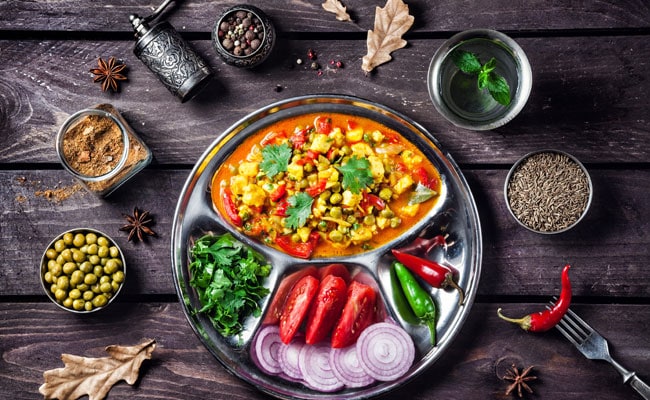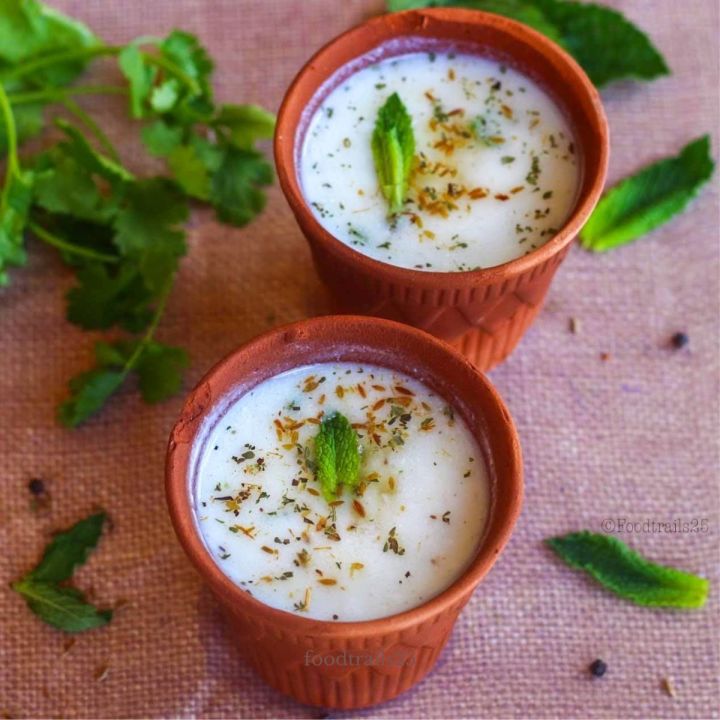
In the world of health and fitness, people often run after imported superfoods like quinoa, chia seeds, and kale. But the truth is, India already has a treasure of traditional foods that are not only affordable but also scientifically proven to be healthy. These dishes have been part of our diet for generations, passed down from our grandparents, and are perfectly suited to our Indian climate, lifestyle, and body type.
Let’s explore some of these Indian superfoods that deserve a place in your daily diet.
1. Daliya (Broken Wheat Porridge)
- Why it’s healthy: High in fiber, packed with essential minerals, and low in glycemic index.
- Benefits: Keeps you full for long, helps in weight management, and promotes healthy digestion.
- How to include: Make a savory version with vegetables for lunch/dinner or a sweet version with milk and nuts for breakfast.
2. Khichdi – The Comfort Food
- Why it’s healthy: A perfect blend of rice, dal, and ghee – making it a complete protein meal.
- Benefits: Easy to digest, comforting during sickness, supports gut health, and provides instant energy.
- How to include: Add vegetables like spinach, beans, or carrots to increase fiber and vitamins.
3. Buttermilk (Chaas)

- Why it’s healthy: Rich in probiotics, calcium, and electrolytes.
- Benefits: Improves digestion, prevents acidity, cools the stomach, and hydrates the body.
- How to include: Drink after meals, especially during summer. Adding roasted cumin powder and mint makes it tastier and more effective.
4. Ragi (Finger Millet)
- Why it’s healthy: Gluten-free, high in calcium, iron, and fiber.
- Benefits: Strengthens bones, prevents anemia, helps in controlling blood sugar, and keeps you fuller for longer.
- How to include: Ragi dosa, ragi porridge, or ragi laddoos are excellent options.
5. Sprouts (Ankurit Daal/Chana)
- Why it’s healthy: Sprouting increases the protein, vitamin C, and antioxidant content of lentils and legumes.
- Benefits: Improves digestion, supports weight loss, boosts immunity, and keeps you energetic.
- How to include: Eat as a salad with onion, tomato, lemon, and a pinch of chaat masala, or use in chaat and sandwiches.
6. Moong Dal Chilla
- Why it’s healthy: Rich in protein, fiber, and low in fat.
- Benefits: Helps in weight loss, builds muscle, and keeps blood sugar stable.
- How to include: Can be eaten for breakfast or evening snack with green chutney.
7. Turmeric Milk (Haldi Doodh)

- Why it’s healthy: Contains curcumin, a powerful antioxidant and anti-inflammatory compound.
- Benefits: Boosts immunity, improves sleep, and supports healing from injuries.
- How to include: Drink warm at night with a pinch of black pepper for better absorption.
8. Idli & Dosa (Fermented Foods)
- Why it’s healthy: Naturally fermented batter increases probiotics, making it great for gut health.
- Benefits: Light, easy to digest, and gives steady energy without heaviness.
- How to include: Perfect breakfast option with sambar and chutney.
9. Makhana (Fox Nuts)
- Why it’s healthy: Rich in protein, magnesium, and antioxidants.
- Benefits: Improves heart health, supports weight loss, and makes a great snack.
- How to include: Roast with a little ghee and spices for a crunchy, guilt-free snack.
10. Ghee

- Why it’s healthy: Loaded with healthy fats, vitamins A, D, E, K, and butyrate (good for digestion).
- Benefits: Strengthens immunity, improves skin, lubricates joints, and helps brain health.
- Note: Consume in moderation (1-2 teaspoons per day).
Conclusion
Indian traditional foods are not only delicious but also carry the wisdom of Ayurveda and generations of healthy living. From simple dishes like khichdi to power-packed ragi, these foods prove that you don’t need expensive imported items to stay fit – your kitchen is already full of superfoods.
Next time you plan your diet, don’t ignore these wholesome Indian foods. They are budget-friendly, easy to prepare, and perfectly aligned with our lifestyle.
FAQs
Q1. Are Indian traditional foods good for weight loss?
Yes, foods like daliya, ragi, and moong dal chilla are excellent for weight loss as they are filling and nutrient-dense.
Q2. Is rice unhealthy?
Not at all! When eaten in moderation and paired with dal, vegetables, or ghee, rice becomes a balanced and healthy food.
Q3. Can ghee make me fat?
No, if consumed in moderation. Ghee actually improves digestion and metabolism. Excessive intake, however, can lead to weight gain.
Q4. Which Indian food is best for immunity?
Turmeric milk, homemade pickles, and buttermilk are great for boosting immunity naturally.
Q5. Why are fermented Indian foods healthy?
They are rich in probiotics, which support gut health, digestion, and overall immunity.
Q6. Are Indian foods suitable for a weight-loss diet?
Yes, many Indian traditional foods like daliya, ragi, sprouts, and moong dal chilla are perfect for weight loss as they keep you full and provide balanced nutrition.
Q7. Can Indian traditional foods control diabetes?
Foods like ragi, moong dal, and sprouts have a low glycemic index, which helps in controlling blood sugar levels naturally.
Q8. Is roti healthier than rice?
Both are healthy when eaten in moderation. Roti has more fiber and keeps you full longer, while rice is lighter and easier to digest.
Q9. Which Indian drink is the healthiest?
Buttermilk (chaas) and turmeric milk (haldi doodh) are among the healthiest Indian drinks, promoting digestion and immunity.
Q10. Can traditional Indian food replace supplements?
In many cases, yes. For example, ragi provides calcium, sprouts give protein and vitamin C, and ghee provides fat-soluble vitamins. However, supplements may still be required if you have deficiencies.
Q11. Do Indian spices have health benefits too?
Absolutely! Turmeric, cumin, fenugreek, and black pepper are all packed with antioxidants, improve digestion, and support immunity.
